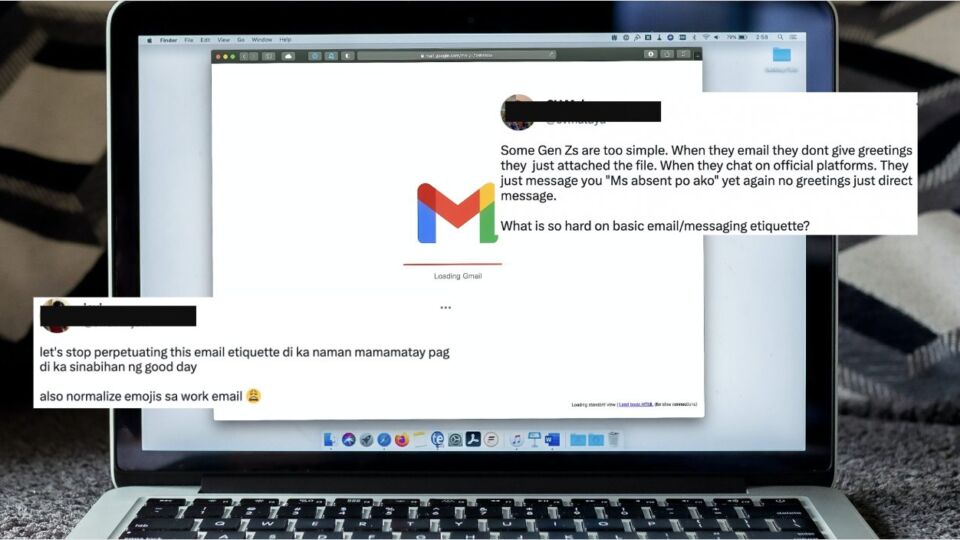Among the many arguments spawned by social media comes this interesting little debate over the rules of email etiquette that has divided the blurry line between Millennials and Gen Z.
With both generations touted as “digital natives,” sending an email should practically be second nature, right? Wrong, apparently, as people of a certain age cohort are calling out some members of the younger set for not knowing how to send an email properly.
It all began when Twitter user @cvmalaya aired her thoughts on the platform, lamenting that her students couldn’t be bothered to include a proper greeting with their emails, simply sending attachments without context.
“Some Gen Zs are too simple. When they email they don’t give greetings, they just [attach] the file. When they chat on official platforms, they just message you “Ms I’ll be absent” again with no greetings, just a direct message. What is so hard [about] basic email/messaging etiquette?” she wrote on Twitter.
While many agreed with her sentiment, there were a few that got pressed by it. Case in point: this thread’s call to “abolish email etiquette,” arguing: “You’re not going to die if we don’t greet you a good day.”
“People are so mad at the younger generation as if they won’t replace you in the future. Eventually your email culture will disappear so idk,” he wrote. He also argued for the normalization of using emojis in emails.
While the discussion is an interesting take that highlights potential generational differences, it begs the question of whether etiquette should even be discussed in terms of generations cohorts. Others argued that Gen Zs weren’t the only email offenders, sharing that their Millennial professors and even those from older generations usually replied with short, one-word responses to their well thought-out emails.
Some people are missing the point. Much has been said about the degree of formality (or informality) an email and its contents should contain, While we can definitely do away with overly formal language, like we’re squires in some anachronistic monarchy, let’s not forget that it’s called etiquette for a reason — it’s simply about showing basic courtesy.
Depending on the industry, you may not necessarily need to express your “Greetings and salutations,” or hopes that “this email finds you well” all the time — but a simple hi or hello won’t hurt. Nor will a few sentences sharing some context about your request or attachment.
It is incredible to think that in this age of immediacy, where every digitial action is instantaneous, we can’t spare the time to give pause and show basic courtesy to the people we’re corresponding with.
You’re not required to greet the guard or doorman who opens the door for you in the lobby, nor thank the server delivering your meal at a restaurant — but it certainly is appreciated.
Similarly, the person on the other end “won’t die” if you don’t add an intro and a body to your email, but we’d argue that it’s worth making the effort if you want to address the people you need something from respectfully.
Yet even if you were the most cynical person in the room, who gives zero shits about professionalism and showing respect to others, there is an incredibly practical reason to just add a proper subject and body to your email — you don’t want your email ending up in the Spam folder or simply being mistaken for malware (and thus ignored).
True, work culture is changing, and generations are changing hands quickly — but we’d like to think manners are timeless and transcend age.
That said, just as we are grappling with the merits and placement of AI programs in the workplace, it is possible to find some middle ground in shifting professional expectations, including email etiquette. While there are no hard and fast rules for this, as long as a workplace or an industry can collectively agree on language and context that sounds fair, decent, and respectful to everyone, then that is all that should matter.
But while we’re at it, fuck yes to emojis ❤️️.




